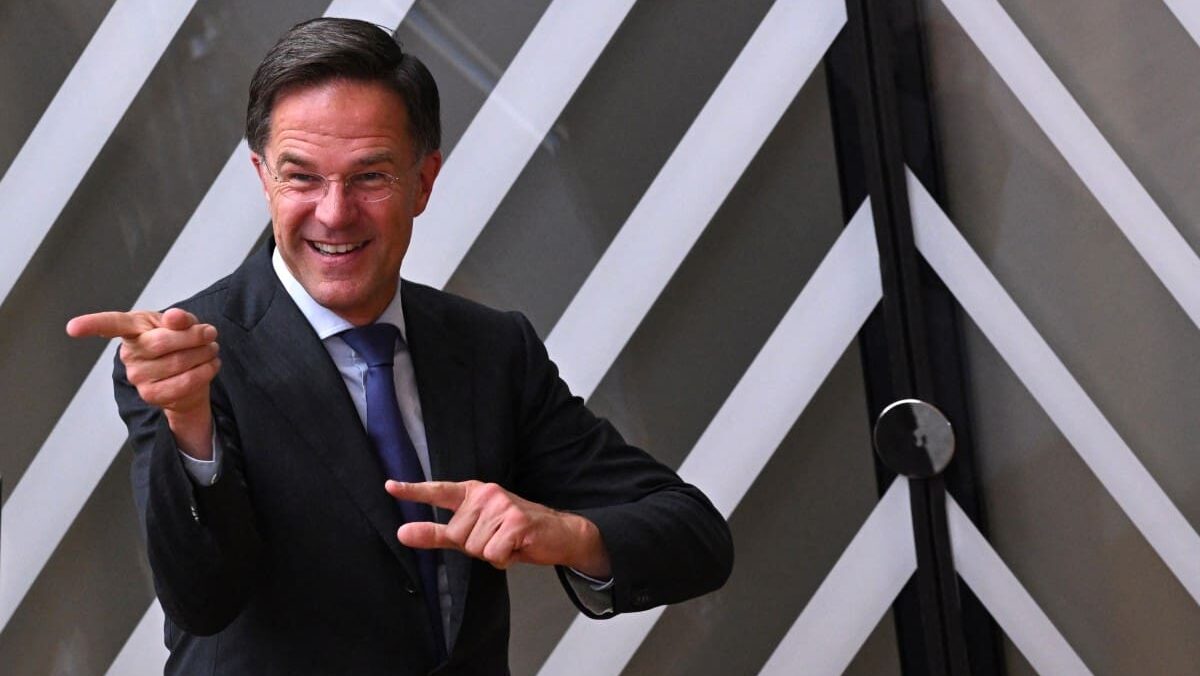
Outgoing Dutch Prime Minister Mark Rutte talks to journalists ahead of the European Council Summit at the EU headquarters in Brussels on June 27th, 2024.
Photo: JOHN THYS / AFP
Outgoing Dutch Prime Minister Mark Rutte (VVD) is rather lukewarm about his own job performance.
“A 6, maybe a 6.5, [out of 10]” Rutte rated himself in his farewell interview with NOS Jeugdjournaal, a children’s program in which youth were given an opportunity to put questions to the prime minister.
His successor, Dick Schoof, will be assuming his duties next week.
While “many things worked out,” Rutte acknowledged that other things had not gone well, such as earthquake-triggering gas extraction in the northern province of Groningen, a childcare benefits scandal that saw recipients wrongly accused of fraud, and the Netherlands’ worsening housing crisis.
“It is a passing grade, but not by a large margin,” he frankly admitted.
The housing crisis—though he did not mention that fact—is intimately tied to the numbers of migrants (who naturally need housing) which continued to swell during his tenure.
As trust in Rutte’s cabinet started to plummet, a dispute over migration policy in July 2023 brought about the collapse of his coalition government, triggering November snap elections that led to a stunning victory for Geert Wilders’ migration-skeptic PVV party.
During the broadcast, Rutte recalled the decision to close schools during the COVID pandemic as one of the most difficult he had to make. “I think it was inevitable,” he commented. “In politics, sometimes you have to pick one option from a series of miserable ones. One option was to do less, but then many more people might have died. To avoid that, we had to make another difficult decision, which was to limit [physical] contacts.”
He claimed that such measures contradicted his liberal beliefs.
The government should not interfere in our lives. It should make sure the schools run and that there are good hospitals, but it should not tell us where we can and cannot go. Here we were required to interfere in people’s lives. This was so against everything we [his liberal VVD party] stand for.
Rutte, set to take over from Jens Stoltenberg as the new head of NATO, held the position of prime minister for 14 years, during which he oversaw four cabinets.
In early 2023, Rutte was personally asked by U.S. President Joe Biden to put himself up as a candidate for leading the military alliance.
Commenting on his upcoming new gig, Rutte said he had shown that he was able to “bring people together and ensure that they do not argue all day long. For a job like that, you … need to have a not-too-big ego,” Rutte remarked.
